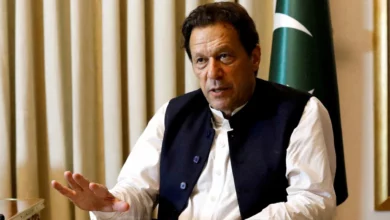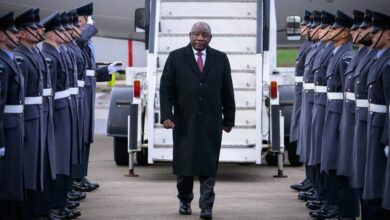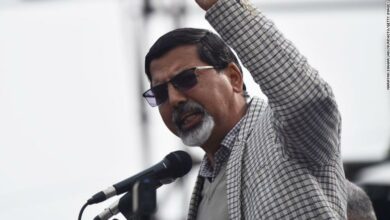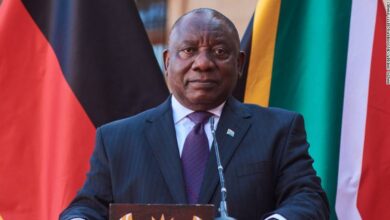Investigations into corruption cases of figures from the Mubarak regime, including those of the former president and his family, have ended, the assistant justice minister for the Illicit Gains Authority announced Sunday.
The announcement comes on the heels of the Shura Council’s declaration that it has evidence that Mubarak regime officials siphoned funds abroad.
At a press conference organized by the authority, head Assem al-Gohary said he was issuing the statement so that the authority could be accountable to public opinion. He said that since January 2011, the authority has received 597 corruption cases, 359 of which are still pending investigation by the Administrative Control Authority of the Cabinet or awaiting financial disclosure paperwork submitted by officials immediately after assuming or leaving a government position.
The criminal court has received six out of the 45 pending cases involving Mubarak regime officials.
Gohary explained that the decision to refer the remainder of the cases to court depends on reports by experts assigned from the Justice Ministry. Their job is to examine and assess the wealth and property of former officials to see if these had come through legitimate methods.
The Shura Council Financial and Economic Affairs Committee announced on Sunday that former regime figures have wealth of upwards of $134 billion. It said $70 billion of that figure remains inside Egypt in real estate and other assets.
Abdel Hamid Arafa, a member of the committee from the Freedom and Justice Party, said that the transitional period has seen more smuggling of funds than any other time.
He noted that leading banking officials who were appointed in the Mubarak era still hold their posts, despite their role in facilitating the movement of illegal assets.
“Unfortunately, we did not hear about the president or the prime minister taking any action to remove any of the current banking leaders," he said.
Members of the committee had launched a scathing attack on Western and Arab countries that have refused to assist Egypt in the recovery of funds, and make oblique references to the Supreme Council of the Armed Forces, the military leaders who oversaw the transitional period.
Mohamed al-Feqi, head of the committee, called for exposing those governments in the media to be judged by Egyptians and their own people.
He said a British delegation recently visiting Egypt was confronted with such accusations and did not respond to them, as it would be an explicit recognition of those charges and crimes.
British Foreign Office officials also denied receiving any official requests from Egyptian authorities inquiring about the wealth or private bank accounts of Mubarak-era officials.




